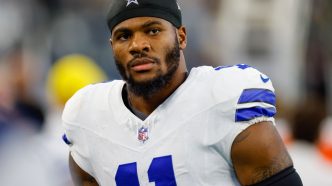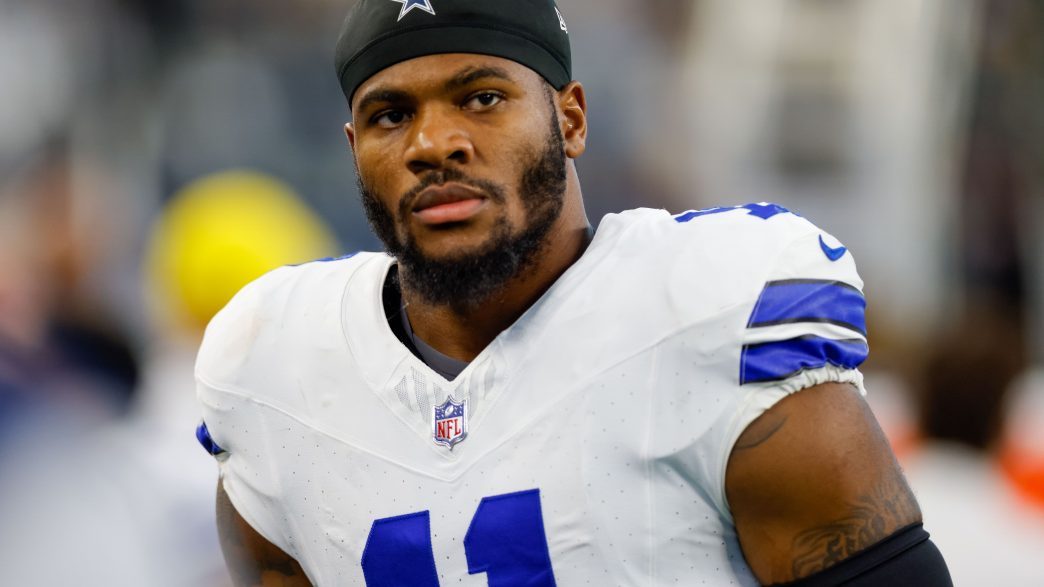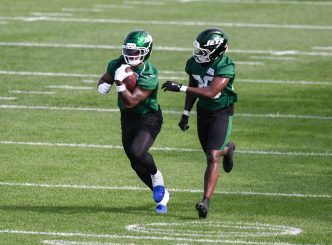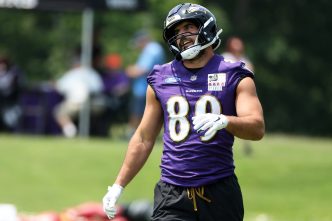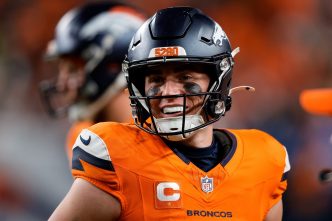When it comes to managing their rising stars, the Dallas Cowboys have a reputation for being overly cautious, and the latest saga surrounding linebacker Micah Parsons reinforces that notion. Last year, we saw tensions mounting between the organization and key players like quarterback Dak Prescott and wide receiver CeeDee Lamb. Now, as Parsons finds himself in a similar predicament, it’s becoming increasingly evident that the Cowboys’ approach may be more shortsighted than savvy.
On the “Six Feet Under” podcast, Parsons expressed his desire to finalize a contract sooner rather than later, pointing the finger at the Cowboys for the delay. “We obviously wanted to get done early,” Parsons noted. “We want that relief off our backs. But, obviously, ownership is always gonna make it drag out, make it more complicated than it has to be.” His comments reflect a growing frustration with what seems to be a lack of communication from the front office. Nonetheless, Parsons remains optimistic, adding, “I just always say, God has me this far, he ain’t done with me yet. So, you know, I just keep working, keep going, and then when it comes, I’m gonna be ready. But, you know, ain’t gonna be no drop off.”
Parsons’ assurance that there will be “no drop off” raises eyebrows. Is there an underlying concern from the Cowboys that securing a deal worth upwards of $40 million annually might affect Parsons’ performance? Regardless of their internal worries, it’s clear that delaying this agreement only inflates the eventual cost.
“We wanted to do the contract last year,” Parsons explained, highlighting the Cowboys’ initial intentions. “They were just kind of like, ‘We want to do Dak and CeeDee.’” After another strong season on the field, one would expect the Cowboys to act decisively to secure their linebacker’s future, especially with the market shifting dramatically as players like Myles Garrett and Max Crosby cement their contracts. This delay is ticking like a time bomb.
In light of the situation, Parsons should firmly consider holding out until a contract is reached. If he does join the team, appearing on the practice field should not be on his agenda unless his terms are met.
Eventually, the Cowboys will have to face the music. If they continue on this path, they could find themselves paying significantly more for Parsons down the line than they would have if they had acted sooner. It’s a classic case of waiting too long in a league that rewards timely decisions, and it raises the question: when will the Cowboys learn?

